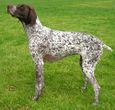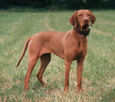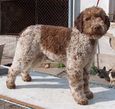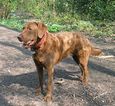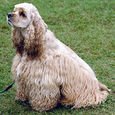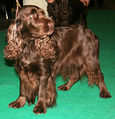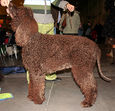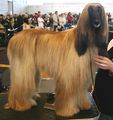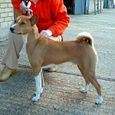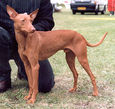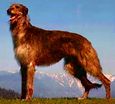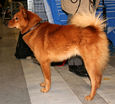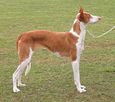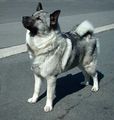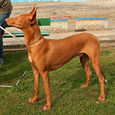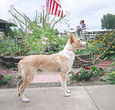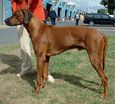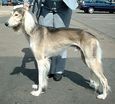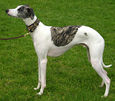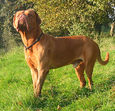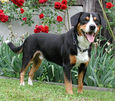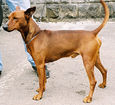|
|
| Line 96: |
Line 96: |
| | Image:Cairn_terrier.JPG|'''Cairn Terrier'''<p>WikiCommons | | Image:Cairn_terrier.JPG|'''Cairn Terrier'''<p>WikiCommons |
| | Image:Cesky_terrier.jpg|'''Cesky Terrier'''<p>ridleyceskyterriers.co.uk | | Image:Cesky_terrier.jpg|'''Cesky Terrier'''<p>ridleyceskyterriers.co.uk |
| − | Image:Dandie_Dinmonet_Terrier.JPG|'''Dandie Dinmont Terrier'''<p>WikiCommons | + | Image:Dandie_Dinmonet_Terrier.jpg|'''Dandie Dinmont Terrier'''<p>WikiCommons |
| | | | |
| | </gallery> | | </gallery> |
Revision as of 21:44, 18 February 2009
Gundog Group
- Dogs that were originally trained to find live game and/or to retrieve game that had been shot and wounded. This group is divided into four categories - Retriever, Spaniels, Hunt/Point/Retrieve and Setters.^
Bracco ItalianoWikiCommons
English SetterWikicommons
German Long-Haired PointerWikiCommons
German Short-Haired Pointerdogfacts.org
German Wire-Haired Pointerbreederretriver.com
Hungarian VizslaWikiCommons
Hungarian Wirehaired VizslaWikiCommons
Irish Red and White SetterWikiCommons
Italian SpinoneWikiCommons
Korthals GriffonWikiCommons
Lagotto RomagnoloWikiCommons
Large Munsterlandermunsterlandersatlarge.com
Retriever (Chesapeake Bay)WikiCommons
Retriever (Curly Coated)WikiCommons
Retriever (Flat Coated)WikiCommons
Retriever (Golden)WikiCommons
Retriever (Labrador)WikiCommons
Retriever (Nova Scotia Duck Tolling)WikiCommons
Slovakian Rough Haired PointerWikiCommons
Small MunsterlanderWikiCommons
Spaniel (American Cocker)dogsindepth.com
Spaniel (American Water)WikiCommons
Spaniel (Clumber)WikiCommons
Spaniel (English Cocker)WikiCommons
Spaniel (Field)WikiCommons
Spaniel (Irish Water)WikiCommons
Spaniel (Sussex)WikiCommons
Spaniel (Welsh Springer)WikiCommons
Spanish Water Dogdogbreedinfo.com
Hound Group
- Traditionally used for hunting by scent or sight. They require a significant amount of exercise and can be described as dignified, aloof but trustworthy companions.^
Basset Bleu De GascogneWikiCommons
Basset Fauve De BretagneWikiCommons
Basset Griffon Vendeen (Grand)WikiCommons
Basset Griffon Vendeen (Petit)WikiCommons
Bavarian Mountain HoundWikiCommons
Cirneco Dell'EtnaWikiCommons
Dachshund (Miniature)WikiCommons
Dachshund (Standard Short-haired)WikiCommons
Grand Bleu De Gascognevdh.de
HamiltonstovareWikiCommons
Irish WolfhoundWikiCommons
Norwegian ElkhoundWikiCommons
Portuguese PodengoWikiCommons
Rhodesian RidgebackWikiCommons
Segugio Italianodogspot.de
Terrier Group
- Dogs originally bred and used for hunting vermin. This hardy collection of dogs were selectively bred to be extremely brave and tough, and to pursue fox, badger, rat and otter (to name but a few) above and below ground.^
Airedale TerrierWikiCommons
Australian TerrierWikiCommons
Bedlington TerrierWikiCommons
Border TerrierWikiCommons
Bull Terrier (Miniature)breedersonline.co.uk
Cesky Terrierridleyceskyterriers.co.uk
Dandie Dinmonet Terrier.jpg
Dandie Dinmont TerrierWikiCommons
Working Group
- Over the centuries these dogs were selectively bred to become guards and search and rescue dogs. Arguably, the working group consists of some of the most heroic canines in the world, aiding humans in many walks of like, including the Boxer, Great Dane and St. Bernard.^
Alaskan MalamuteWikiCommons
Bernese Mountain DogWikiCommons
Bouvier Des FlandresWikiCommons
Bull Mastiffaboutpedigreedogs.com
Canadian Eskimo DogWikiCommons
Dogue De BordeauxWikiCommons
Entlebucher Mountain DogWikiCommons
German PinscherWikiCommons
Giant SchnauzerWikiCommons
Greater Swiss Mountain DogWikiCommons
English MastiffWikiCommons
Neapolitan Mastiffgotpetsonline.com
Portuguese Water DogWikiCommons
Pyrenean MastiffWikiCommons
Russian Black TerrierWikiCommons
Siberian HuskyWikiCommons
Tibetan MastiffWikiCommons
^Unknown, . (2006)
Breed Group Listings. London: The Kennel Club.




